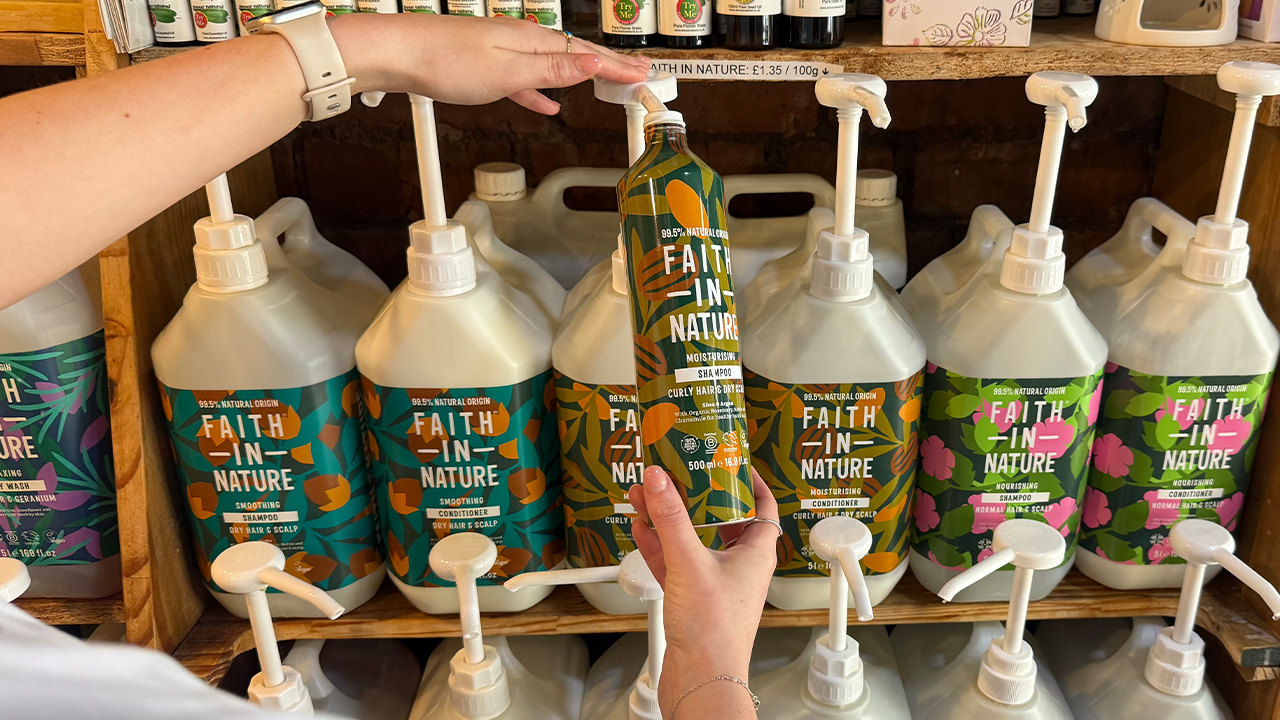
17, September 2025
5 Budget-Friendly Ways Students Can Shop Sustainably
Most students care about the future of the planet. According to research from Students Organising for Sustainability (SOS UK), 79% of UK students care about climate change – and 75% believe they have the ability to make changes in their lives that could help reduce it.
Some of the easiest (and most effective) ways to tackle climate change involve the decisions you make about shopping. But when you’re a student, you need to be conscious of your budget as well as the planet. Try these tips to cut the cost of your shopping and its impact on the environment.
Shop Second-hand

Everyone knows that second-hand clothes shopping is better for the planet (and usually a lot less expensive) than buying new. Charity shops, student union markets and apps like Depop and Vinted are all brilliant sources of pre-loved clothing.
It’s not just about clothing, though. Buying used textbooks, electronics and essentials for your home is a great way to save money and reduce waste. Many unis and halls of residence organise book, clothes and even plant swaps.
Check whether your uni is signed up to Campusboard, an online platform for trading everything from textbooks to TVs on-campus. Stock up on second-hand books from your reading list – and never have to hunt for the last copy in the library again!
Borrow Instead of Buy

Sometimes borrowing beats buying. Hiring higher-value items like essential electronics is a greener way get the tech you need – without the big outlay.
If you need a laptop for your work, speak to your university. Many offer a short-term rental service in the library, or will rent them out longer-term to students who meet certain criteria. If not, search online for tech leasing sites that lend out laptops, phones and tablets. Some leasing sites offer refurbished tech, which reduces unnecessary manufacturing and waste.
Want to cut down your carbon footprint and whizz to lectures on two wheels? Several UK universities have bike rental schemes, so you can get around without polluting the planet or forking out for a new ride. Most cities have bike sharing schemes and apps so you can hop on a bike in a hurry. Look out for ‘libraries of things’ near your uni too. These community initiatives loan out everything from cameras to camping gear (for when you’re in need of some Nature).
Refill, Refill, Refill

In SOS’s survey, an impressive 89% of students reported recycling household waste in their everyday lives. This is brilliant, because recycling is good – but refilling is even better!
Refilling empty containers with toiletries and cupboard stables massively reduces unnecessary packaging, including lots of single-use plastics – and usually works out cheaper than buying. Search for zero-waste stores in your local area and even on campus; several universities now have their very own refill stores.
Prefer to refill at home? Team up with housemates to bulk-buy toiletries, cleaning products, dry foods – and create your very own home refill station.
Reuse, Reuse, Reuse

Wherever there’s a reusable alternative to a disposable item, choose it. From face wipes to water bottles, many everyday products now come in versions designed for repeated use. Coffee cups, tote bags, period pants, electronic notebooks… the list goes on.
A little habit change is all it takes to avoid wasting money on unnecessary plastic bottles. Take a refillable water bottle everywhere – and download the Refill app so you can always find a place to top it up.
See how many everyday objects you can swap for reusable. Choosing these planet-friendlier options doesn’t just help cut down on waste, but usually saves you money too.
Plan Food Shopping in Advance

Batch-cook big meals like stews and curries and freeze the leftovers in reusable containers. Your future self will thank you! If you already have ready-made food in the freezer, you’re way less likely to be tempted by takeaways. Club together with housemates to make meals together and save money, waste and gas or electric.
Going food shopping as a household means you can split the cost of shared essentials and won't end up with four or five of everything in your kitchen cupboard. Whether you go shopping with your housemates or by yourself, make a list so you only buy what you need, and nothing ends up uneaten and binned.
Food leftover apps are another handy tool for reducing costs and waste. You can grab bargain bags of excess food from shops, cafes and takeaways – rescuing them from the dumpster and saving yourself some money.
Enjoyed this? You might like:
Sustainable Swaps for Students



